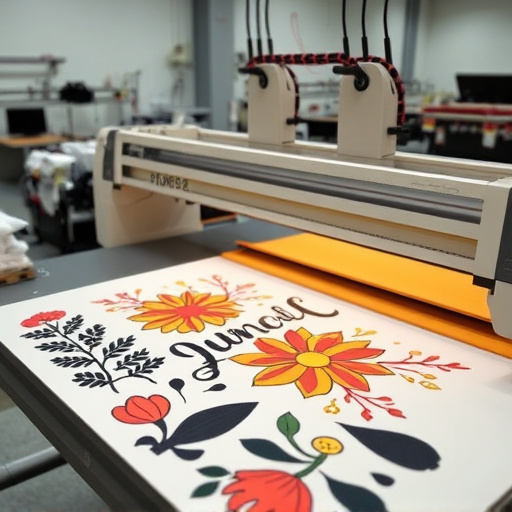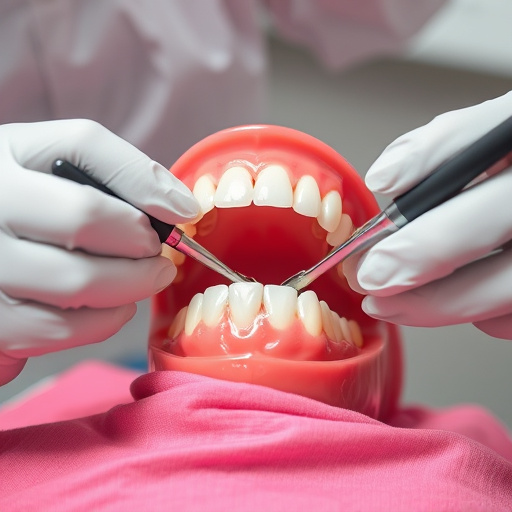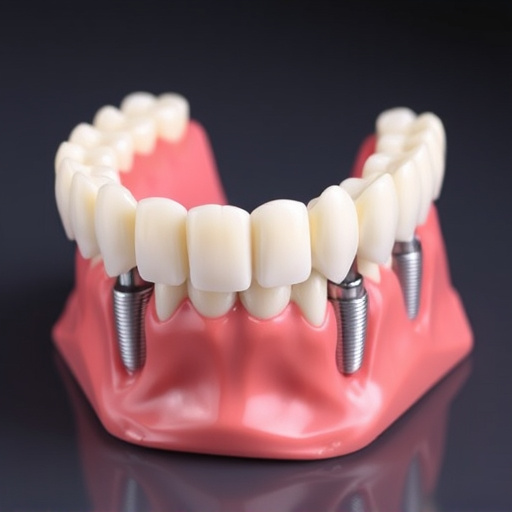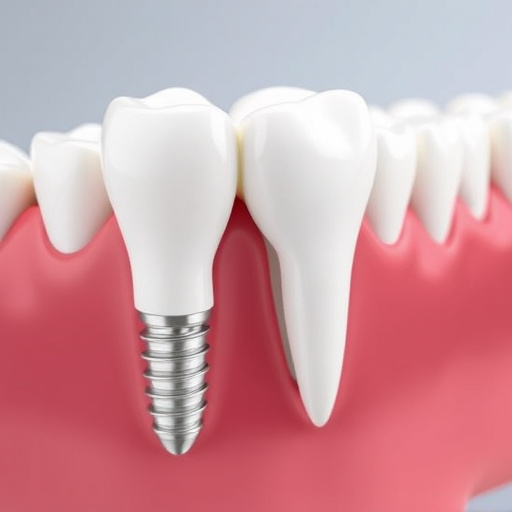Special needs dentistry provides tailored oral care for individuals with physical, mental, and emotional disabilities. It utilizes adapted methods, equipment, and environments to address unique patient requirements, from emergency interventions to routine check-ups and restorative procedures. Creating inclusive spaces, modifying treatments, clear communication, flexible scheduling, and staff training are key to ensuring access to quality care and promoting long-term well-being through preventive dentistry services.
Special needs dentistry is a crucial field dedicated to providing comprehensive dental care for individuals with diverse requirements. This accessible treatment option ensures that every patient, regardless of their abilities or conditions, receives the oral health services they deserve. In this guide, we’ll explore the fundamentals of special needs dentistry, delve into adaptable treatment methods catering to varied patients, and uncover strategies to foster inclusivity within dental practices.
- Understanding Special Needs Dentistry: A Comprehensive Guide
- Accessible Treatment Options for Diverse Patients
- Creating Inclusivity: Adapting Dental Care for All
Understanding Special Needs Dentistry: A Comprehensive Guide

Special needs dentistry is a specialised field that focuses on providing dental care to individuals with various physical, mental, or emotional disabilities. It goes beyond treating oral health issues; it’s about creating a safe, comfortable environment for patients who may require additional support during their dental visits. This includes adapting treatment approaches and using specialised equipment to cater to unique needs, ensuring everyone receives the best possible care.
Understanding special needs dentistry involves comprehending that every patient has distinct requirements. It could involve modifying procedures, employing soothing techniques, or even using specialised tools designed for better accessibility. A comprehensive guide should also include information on preventive dentistry, as regular check-ups, dental cleanings, and education are vital in maintaining oral health for these patients. Family dentistry professionals trained in this area play a crucial role in promoting overall well-being by addressing both physical and emotional needs during dental care.
Accessible Treatment Options for Diverse Patients

In the realm of special needs dentistry, accessible treatment options are designed to cater to a diverse range of patients, ensuring that everyone receives the care they need regardless of their unique circumstances. This includes individuals with physical disabilities, sensory processing issues, or developmental delays that may make traditional dental visits challenging. Dentists specializing in this field employ various strategies to create a welcoming and comfortable environment, such as using specialized equipment, offering deep sedation options, and providing a quiet, calm atmosphere.
The spectrum of services spans from emergency dental care, which is crucial for acute situations, to routine oral exams that are essential for preventive care. Restorative dentistry plays a vital role in repairing damaged teeth and restoring oral health, while other techniques focus on managing anxiety and promoting patient comfort during procedures. These inclusive practices not only address immediate dental concerns but also foster long-term oral health and well-being for all patients, regardless of their background or abilities.
Creating Inclusivity: Adapting Dental Care for All

Creating an inclusive environment is paramount in special needs dentistry to ensure that all patients, regardless of their abilities, can access quality dental care. This involves adapting treatment spaces and procedures to accommodate various physical and cognitive requirements. For instance, modifying equipment to lower height levels, installing specialized chairs, or using visual aids during examinations can significantly improve comfort and communication for patients with mobility issues or sensory sensitivities.
The focus on accessibility extends beyond the clinical setting. It encompasses providing clear information in easily understandable formats, offering flexible appointment scheduling, and ensuring staff training in special needs dentistry techniques. By integrating these adaptations, dental practices can foster a sense of belonging and deliver preventive dentistry services, such as regular dental cleanings and check-ups, tailored to each patient’s unique needs. Additionally, addressing oral health concerns early on through routine care, including procedures like dental crowns, contributes to the overall well-being of individuals with special needs.
Special needs dentistry is transforming oral healthcare, ensuring accessible treatment options for diverse patients. By understanding the unique requirements of individuals with special needs and implementing inclusive practices, dental care becomes a reality for all. Through adaptable services and a comprehensive guide like this, we can navigate the journey towards an inclusive dental landscape, catering to every patient’s specific needs.














